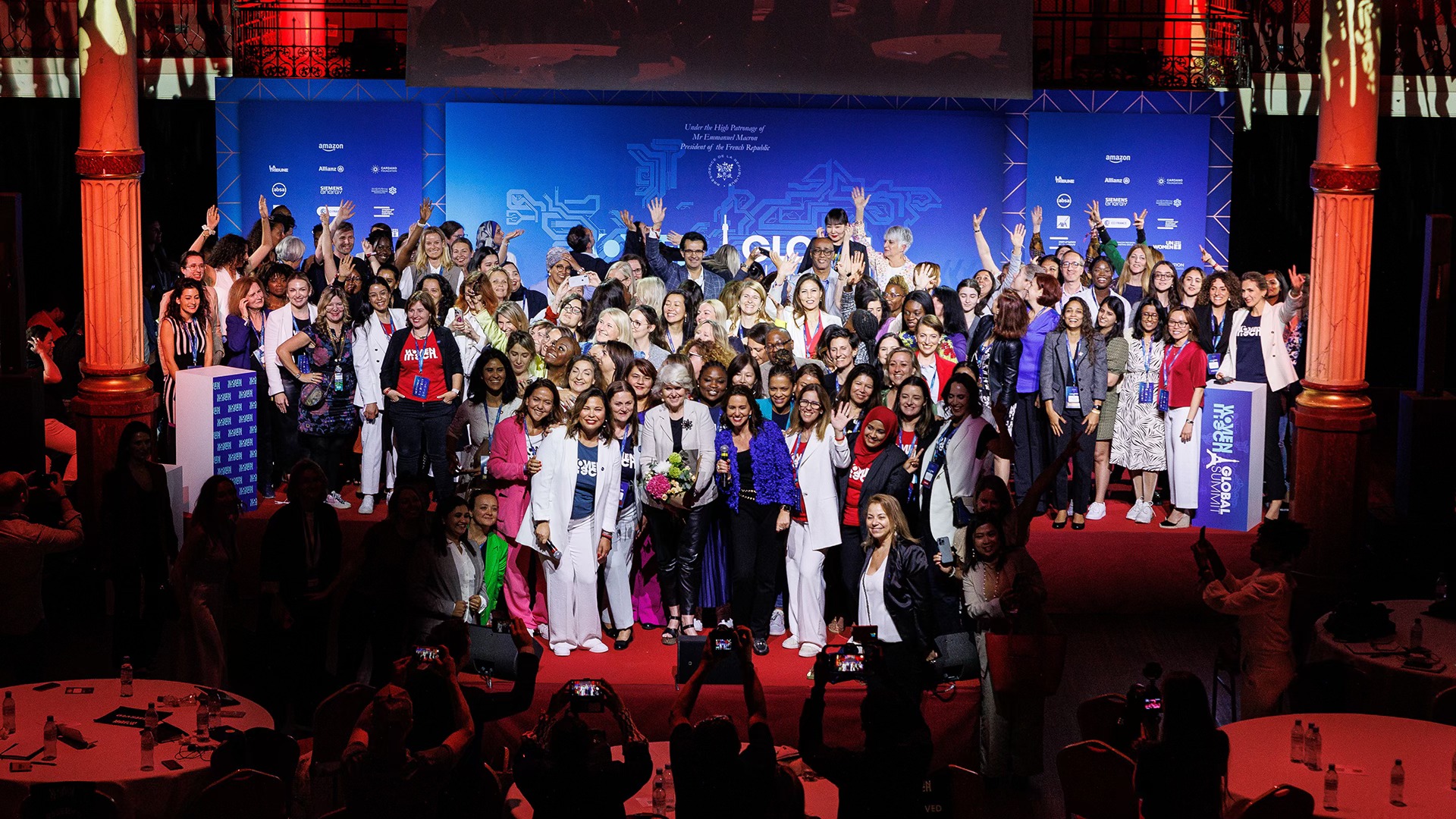ASTANA — Kazakhstan’s tech industry growth presents tremendous opportunities for women to leave their mark, said Ayumi Moore Aoki, the founder and CEO of Women in Tech Global. In an interview with The Astana Times, Aoki highlighted that as the country’s young population embraces artificial intelligence (AI) and fintech, women leaders are poised to drive innovation and shape the future of technology.

Women in Tech Global emphasizes international collaboration as key to overcoming regional challenges. With chapters in 54 countries, including Kazakhstan, the organization boasts a membership of over 250,000 people. Photo credit: women-in-tech.org
“What is particularly exciting is the country’s very young population that is eager to explore new technologies, especially AI – this enthusiasm will definitely enhance both the regional and global talent pool,” said Aoki, emphasizing the opportunity for female tech leaders to pioneer innovation and represent Kazakhstan on the world stage.
“During my time here, I have met many impressive women leaders in the banking industry, and I firmly believe their contributions to the banking and fintech sectors can be incredibly valuable to the ecosystem,” she added.

Ayumi Moore Aoki, the founder and CEO of Women in Tech Global. Photo credit: ayumimooreaoki.com
Women in Tech Global, headquartered in Paris, is the world’s leading organization dedicated to closing the gender gap and empowering women in technology. With chapters in 54 countries, including Kazakhstan, the organization boasts a membership of over 250,000 people. Aoki, who founded the initiative in 2018, is also a member of the United Nations Educational, Scientific and Cultural Organization’s (UNESCO) International Consultative Group of Experts for Closing the Gender Gap in Science.
She noted that the future of women in tech is promising and is driven by a new “generation of female leaders challenging traditional norms.”
“What excites me most is watching women here lead and shape the tech revolution. We are particularly thrilled that Kazakhstan will be bringing the largest delegation to the Women in Tech Global Summit in Osaka this April, which will be part of the World Expo,” said Aoki.
Building inclusivity through global collaboration
Women in Tech Global emphasizes international collaboration as key to overcoming regional challenges. While obstacles differ across countries, the need for mentorship, networking, and skill development remains universal.
According to Aoki, to address this, Kazakh women can share their experiences in career growth and also learn from international peers about innovation and leadership. She highlighted the success of Women in Tech chapters worldwide, which provide shared resources and opportunities to help women navigate male-dominated fields.
To foster equal representation, Aoki noted the significance of ensuring funding access for women-led startups and promoting female leaders in visible roles.
“We need women in power across public institutions and private industry, actively shaping policies and directing resources. This means implementing mentorship programs, ensuring equal access to funding, and creating more visible roles for female tech leaders,” said Aoki.
“It is about creating an ecosystem where women do not just participate but take their place at the highest levels of leadership and decision-making,” she added.
Expanding networks and overcoming regional challenges
Building a global support network for women in tech comes with challenges, particularly in addressing disparities in resources and opportunities. Aoki explained how Women in Tech Global’s decentralized but connected model helps create a lasting impact.
“Each country has unique technological infrastructure, cultural norms and economic realities. Overcoming this requires a flexible approach – creating programs that could adapt to local contexts while maintaining our core mission. We succeeded by building strong local partnerships and empowering regional leaders to tailor initiatives to their communities,” said Aoki.
Considering Central Asia’s socioeconomic and cultural landscape, balancing a fast-paced tech career with personal life can be particularly challenging.
“Work-life balance in the tech industry is a universal challenge, but it takes on unique dimensions in Central Asia,” said Aoki.
She emphasized the importance of flexible work arrangements aligned with cultural values, suggesting that technology can help women better manage their time through remote work options and digital productivity tools.
“It is also crucial to build support networks – both professional and personal – and to advocate for workplace policies that acknowledge family responsibilities. Companies need to recognize that supporting work-life balance is not just about employee wellbeing; it is about retaining top talent,” said Aoki.
Redefining leadership in tech
Aoki also noted that artistic sensibility and creativity are often overlooked in tech leadership. In an industry driven by innovation and constant change, these qualities enable leaders to develop user-centric solutions and push technological boundaries.
“My fine arts background has shown me how leaders with artistic skills tend to approach challenges with unique perspectives, seeing patterns and possibilities that others might miss. This creative mindset, combined with empathy and the ability to understand and connect with team members, users and stakeholders on a human level, often makes the difference between good and great leadership,” said Aoki.
